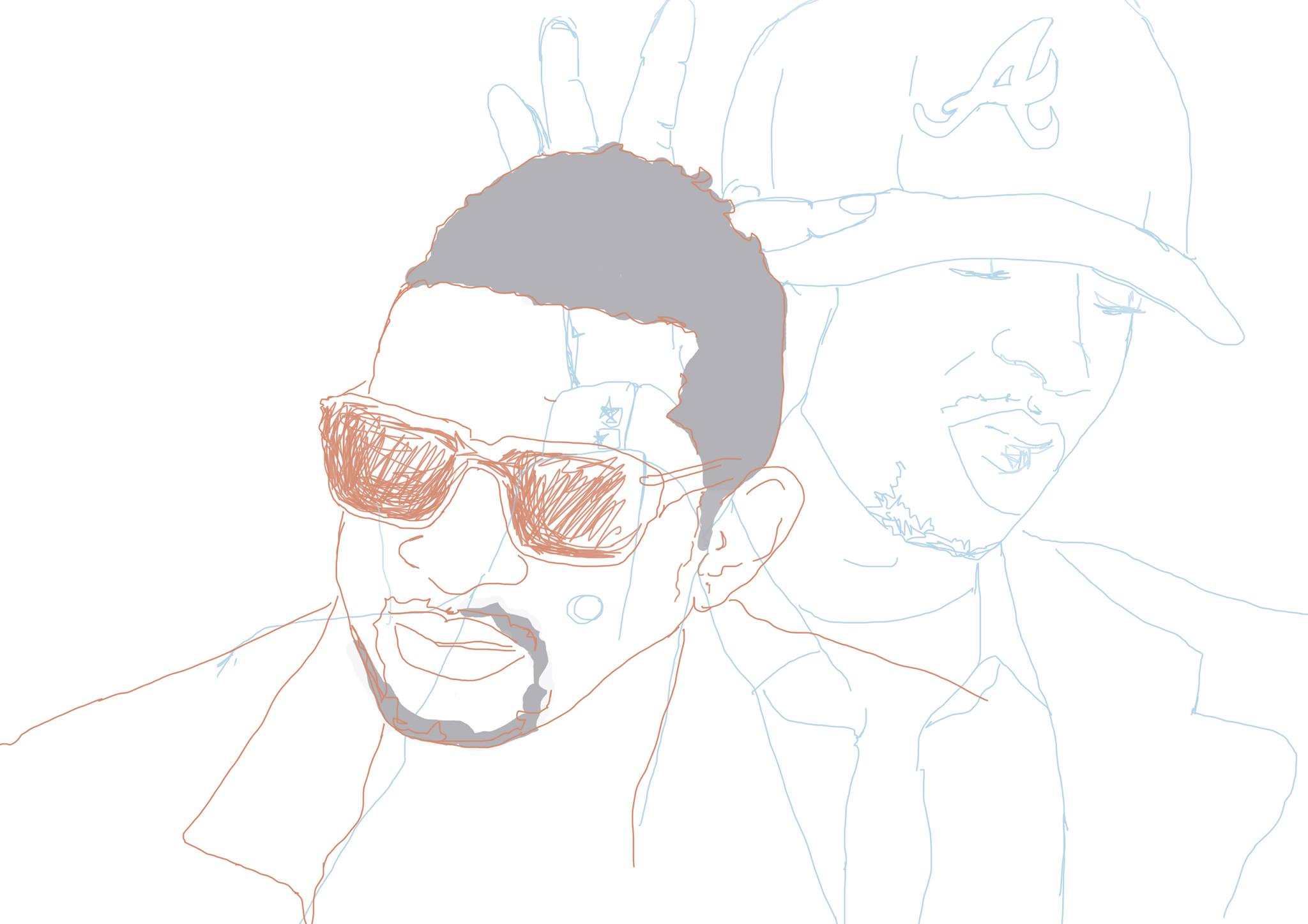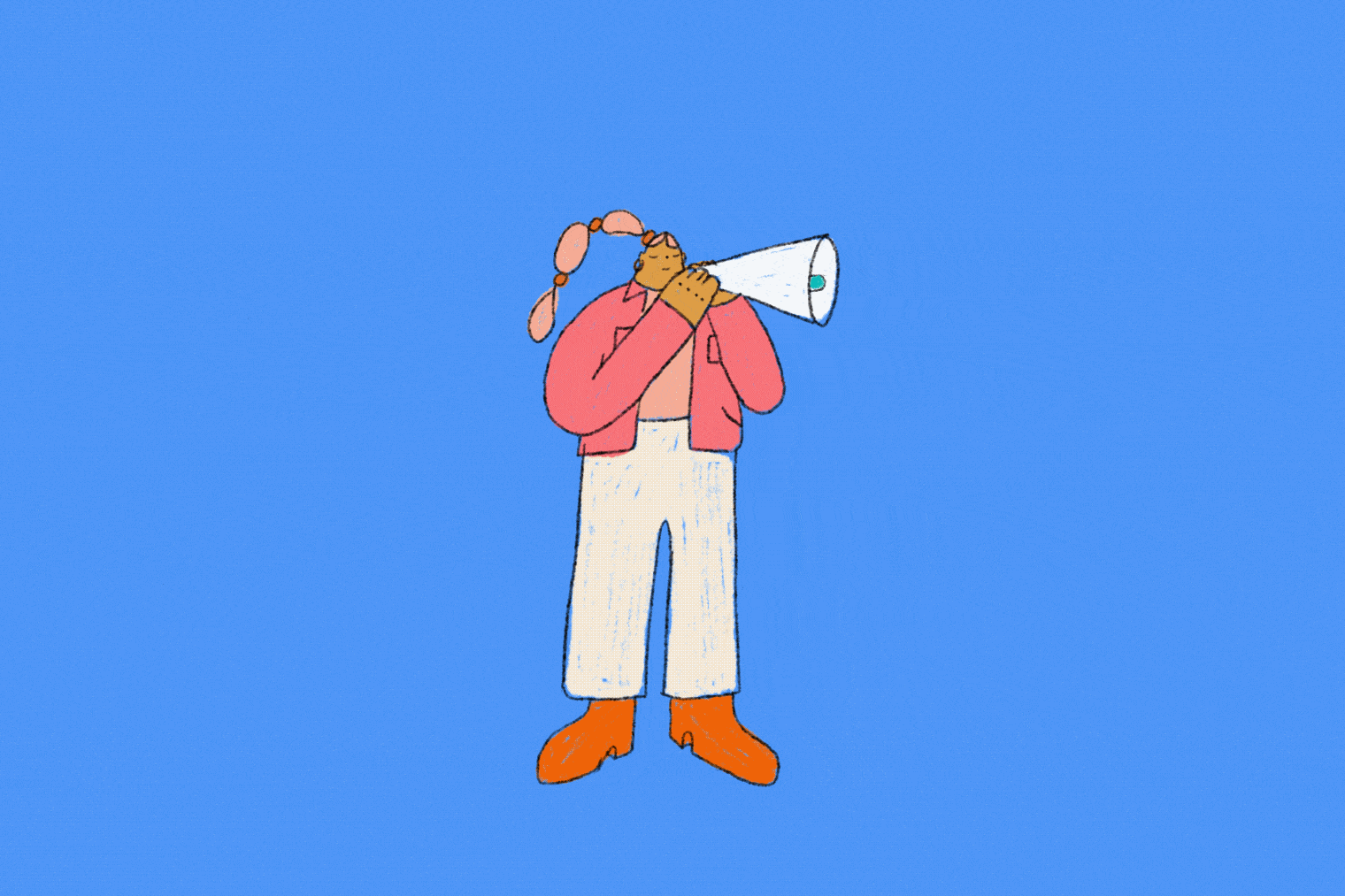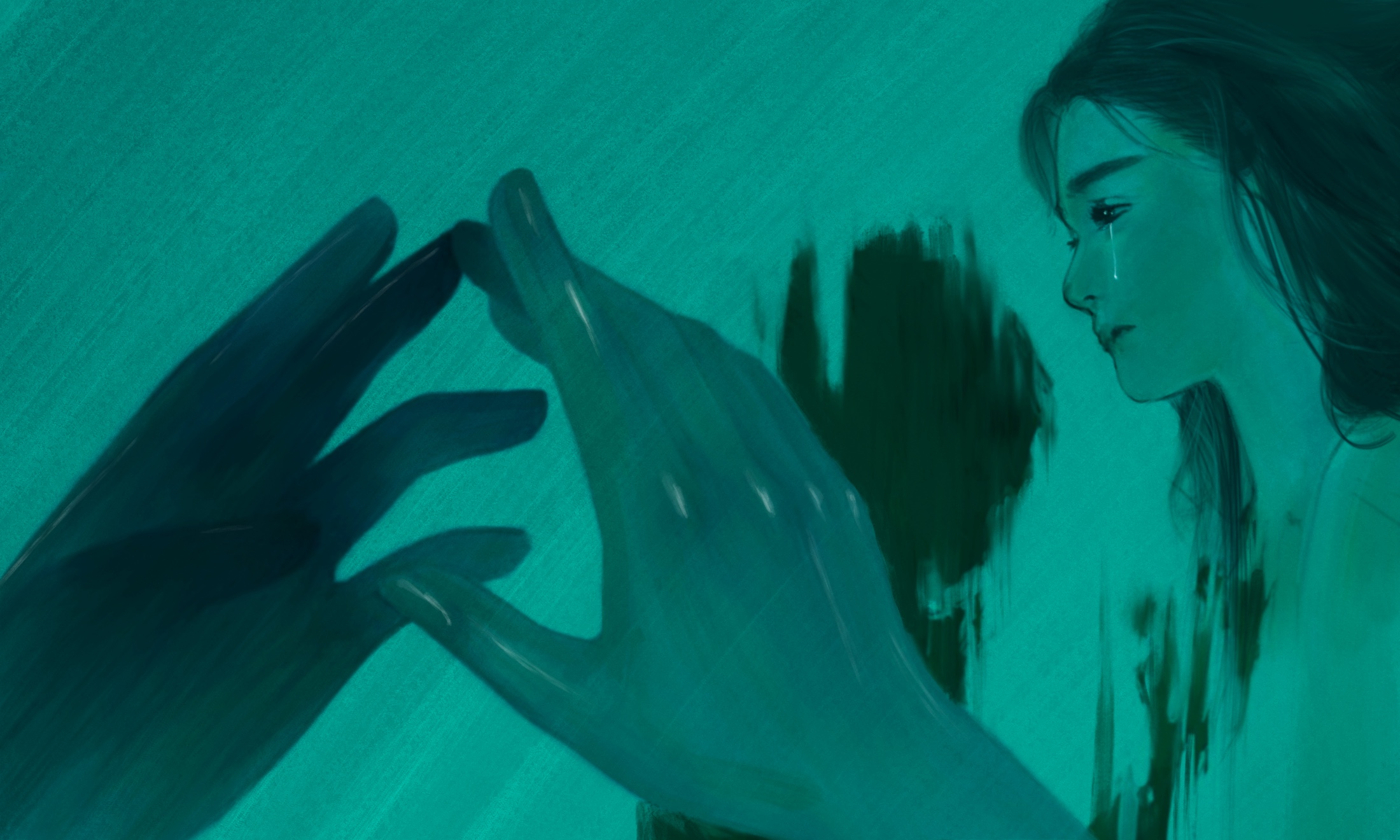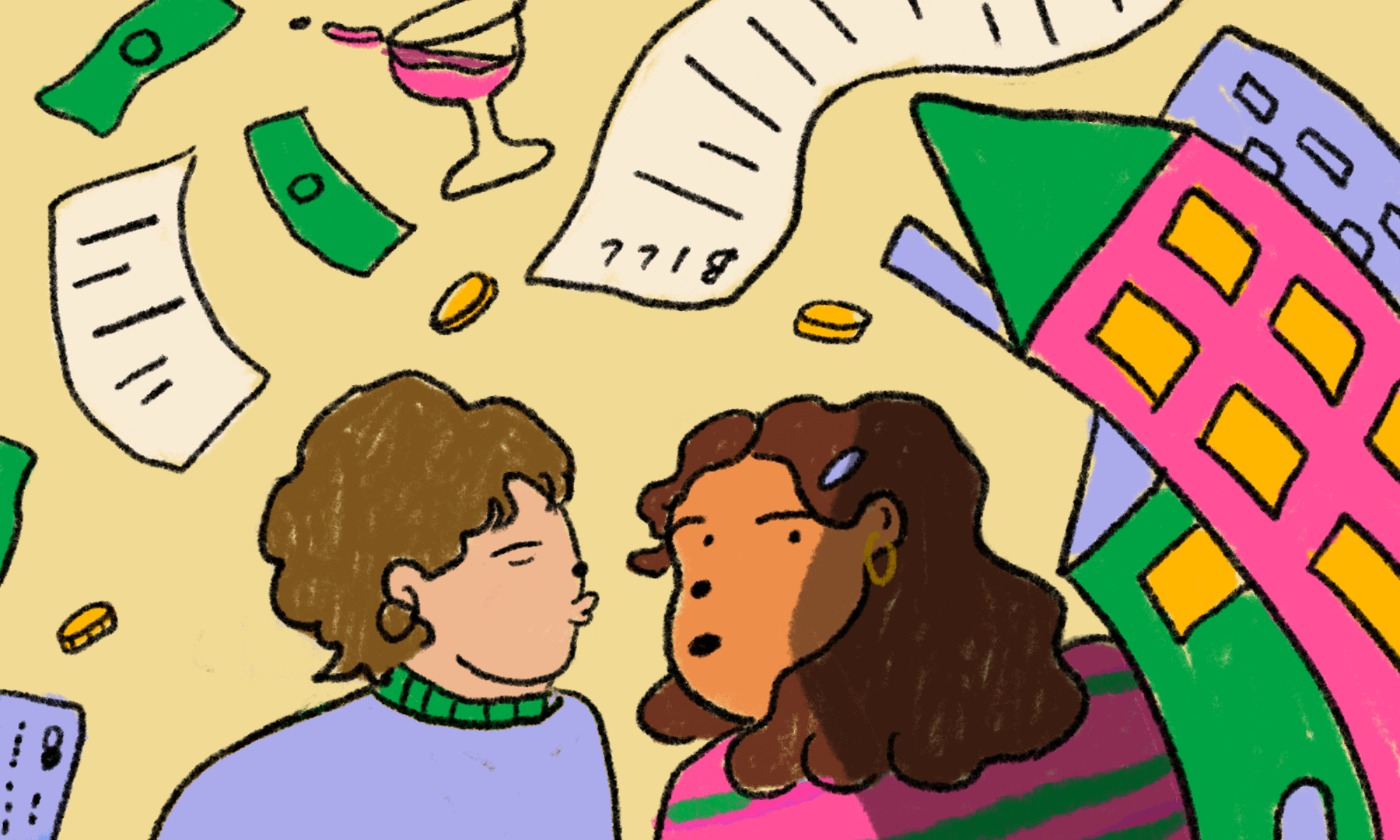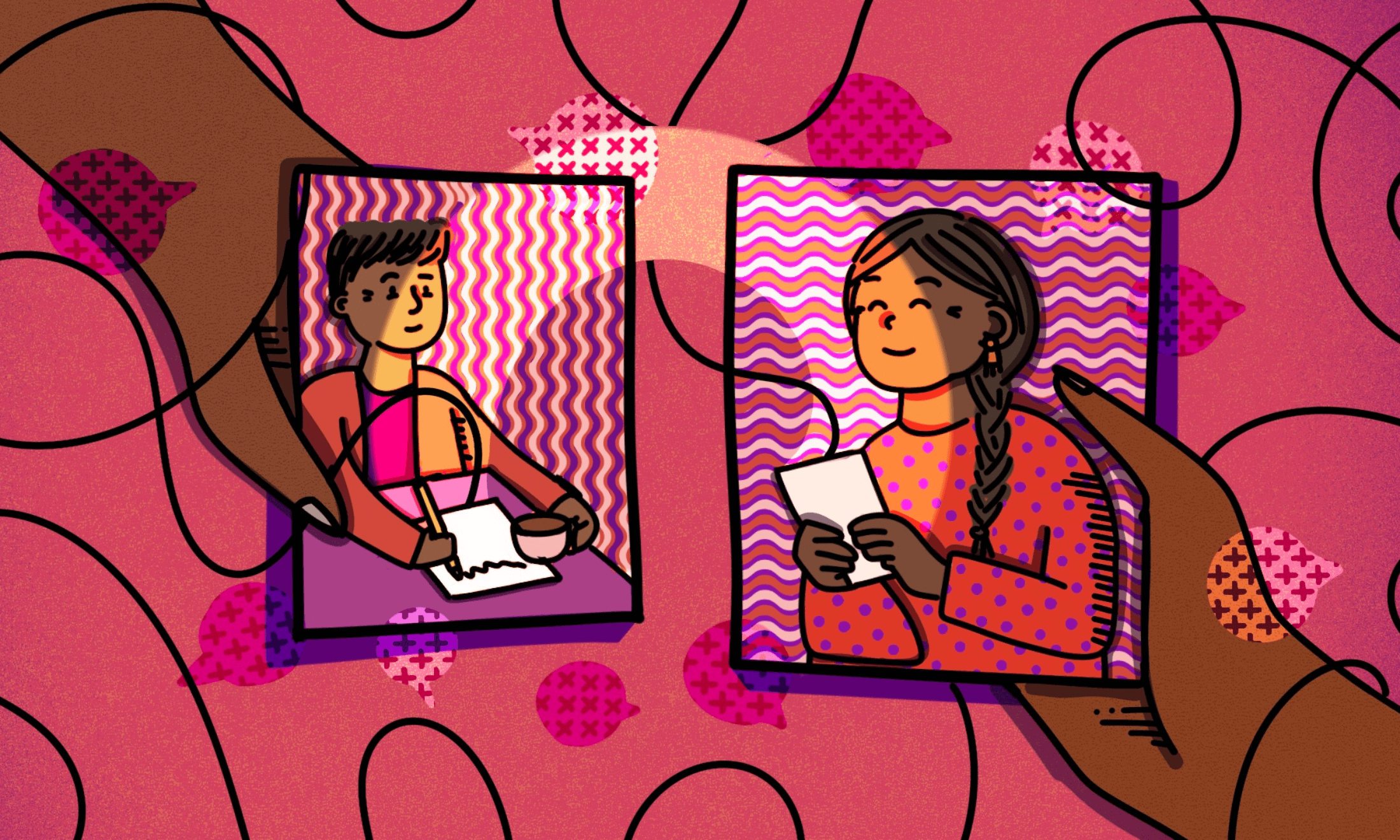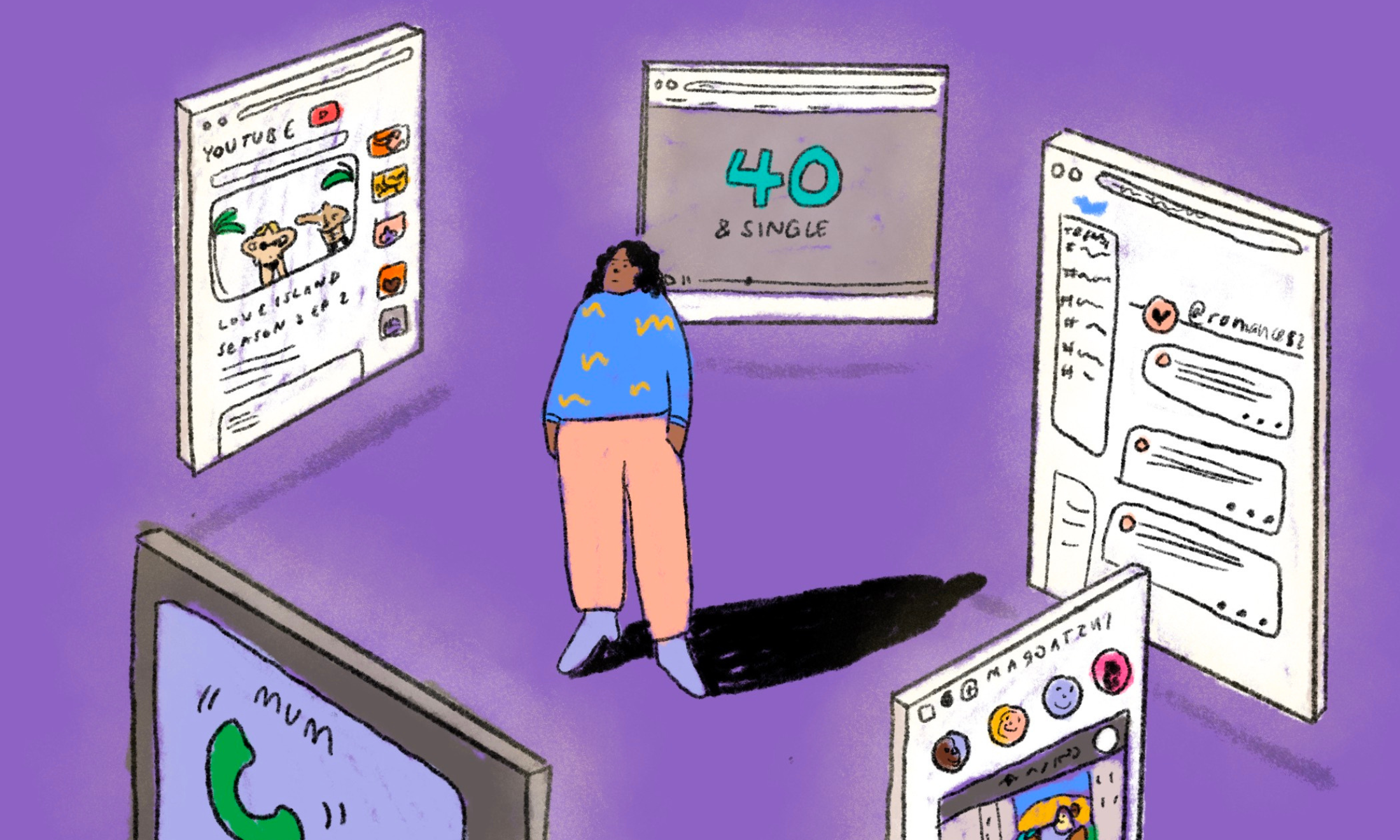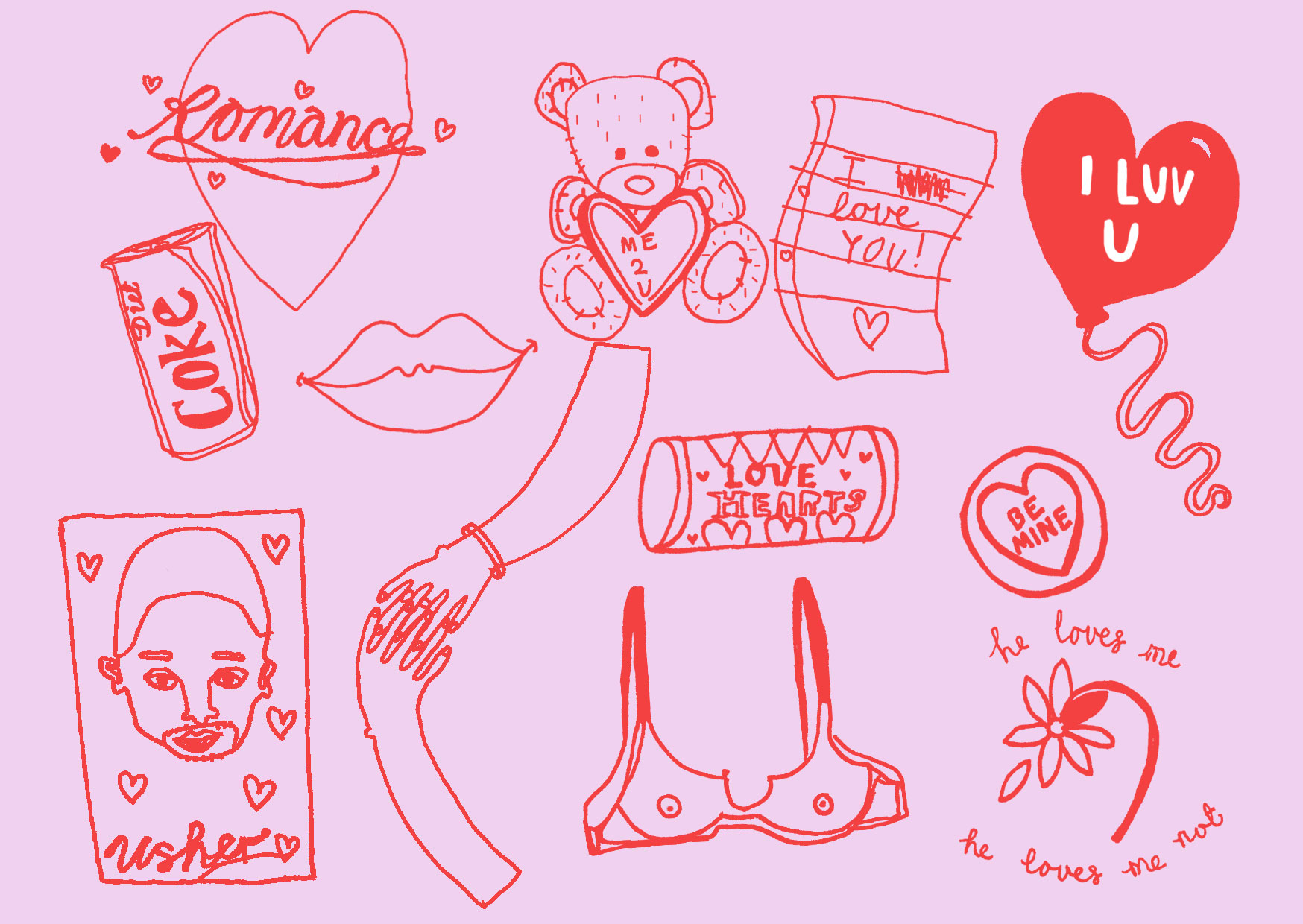
I was 12 years old. I was 12 years old, and I had gotten my period the year before so I guess I was a Woman now. I was a Woman but I still felt like that same awkward Chinese kid, with the severe overbite and thin, wiry blue glasses, and the training bra from La Senza Girl I had to convince my mother to let me buy. I was 12 years old, and I lived off diet coke, dial up internet, and the Much Music channel.
I was 12 years old, and whenever the video for Usher’s “Confessions Part 2” aired, I would lose it. My younger sister and I would scream “It’s ON!”, and we’d run and sit ourselves down on the floor, only a foot away from the television screen in our living room, thrilled to watch the video we had memorised frame by frame. I remember loving every bit of it. I remember especially loving the part where Usher stands defiantly in front of a mirror with his shirt off – six pack glistening under the studio lights – and the mirror proceeding to shatter dramatically into a billion pieces.
But I made it clear to myself that I didn’t like-like Usher. I insisted that I was simply a fan of Usher. I told myself that Usher was just a “very cool” guy with incredible dance moves and a smooth singing voice. Because, God forbid I actually find Usher attractive. God forbid I find a man attractive!
Looking back, I’ll admit that my reluctant love for Usher at the age of 12 was comedic. I recently recounted my preteen obsession with him to a friend. Sounds like you had some repressed urges, she commented, amused. I laughed while nodding vigorously in agreement. Seriously.
But what I didn’t tell my friend was that this hesitation towards admitting desire wasn’t isolated to the life stage we’ll title “The Year I Really, Really Liked Confessions Part 2″. It’s something that persisted into my teenaged years, and then spilled into my adult life. Maybe it was because of my Asianness or my nerdiness, my awkwardness or what, at times, I truly believed was my ugliness. Maybe I was just trying to be realistic. But whatever it was, my complicated relationship with Usher was symbolic of something bigger; something darker; something that I think I’ve always believed, deep down: Desire wasn’t allowed for people like me. Because romance wasn’t meant for people like me.
I recently reconnected with my high school friends, and eventually we got to reminiscing about teenage crushes. I was shocked at how many they were each able to list. There was Mike and there was Josh and there was Robert and there was the dreamy Mackenzie brothers and there was David and there was Brennan and there was Kyle. There were more names, but I couldn’t keep track. Once everyone had recounted their crushes, and it was my turn, I shared that I actually couldn’t remember if I had one. But the truth was, I knew that I didn’t have one. The truth was, my 16 year old self didn’t dare entertain the idea of a crush. I never let it enter my consciousness, because I had an implicit understanding that a boyfriend was outside the realm of possibility.
It was outside the realm of possibility because everyone told me so.
TV told me so! Teenage romance was reserved for fair-skinned girls with bangs and quirky interests. Garden State was my favourite movie.
My Chinese, immigrant parents told me so! Romance was for a future, adult, responsible version of myself; pre-marital relations were immoral and now was the time for studies and good behaviour.
My peers told me so! A popular girl by the name of Rebecca in grade eleven philosophy once cackled in front of the whole class, shrieking, can you even -imagine- Lorraine ever kissing a boy?!!
And although my feelings were hurt by her words, at the time, the dearth of romance in my teenaged life generally did not make me feel sad nor a particular sense of longing. I simply acknowledged that romance would be an untimely, illogical goal. I was a pragmatic teen. I focused the energy from my teenage angst into freeing myself from the reigns of my overprotective parents, who only permitted me to leave the house only once a month (or twice, if I was lucky!). I focused my energy into casually seeming as non-Chinese as possible my very white, very small, Ontario hometown. I focused my energy into studying the artsy, charmingly weird white girls of the internet closely – I cut my own bangs; I took up photography; I listened to Arcade Fire and read alternative blogs and wore the right clothes, preparing for the day I could leave home and finally be myself and date a handsome indie rock white boy. Because that’s what romance was. And if that romance was going to happen, I understood that it was going to come later, and for a different kind of “me”.
Once I exited my teenaged years, I finally became an adult in adult relationships with white men who played indie rock on their guitars. But by then I learned I believed many things were not meant for me. Emotional vulnerability wasn’t meant for people like me. Public displays of affection weren’t meant for people like me. Hell, even private displays of affection weren’t meant for people like me. If I engaged in any of these things, it would surely feel like a façade, an imitation of something rather than the real thing.
So, I refused. I refused to hold the hands of the men I dated in public. I refused to tell them I cared for them or loved them or found them beautiful out loud (although I did say these thing in emails and in texts and in writing). When they tried to look me in the eyes for more than five seconds, I couldn’t maintain their gaze. I wanted it, but at the same time, it all felt disingenuous, positively foolish. Who was I to try to claim an experience that wasn’t compatible with who I believed myself to be? I was 24 and I had imposter syndrome when it came to romance. I was finally living my teenage dream, but all I could think the whole time was, is this really happening? And when would I, imposter, be found out?
Sometime last year I moved to a new city and started my second substantive relationship. He was smart, funny, tall, handsome, stylish, dark-haired, bearded, thoughtful, bizarre, a little melancholy. He was white. (That’s a troublesome pattern of behaviour, a friend once told me. I adored him, although I had trouble articulating it: I only expressed myself through letters I composed on scraps of paper or as .txt files that I sent over Facebook chat. Despite my low-key obsession with him, I was uncomfortable with our dynamic: he found me intriguing and beautiful when we were alone in our bedrooms or on subway or in a dimly lit bar. But he refused to let me meet his friends. He played shows but never invited me to them. When he moved into an apartment with his bandmate, I was suddenly never allowed to visit. You wouldn’t like them anyway. Or, better – You project a certain image that doesn’t reflect mine. What this image was, I didn’t know. My Asianness? My nerdiness? My awkwardness? My ugliness? My inability to fit in the white, indie rock scene despite all my teenaged self’s contrived efforts? Whatever it was, it was something that made me positively un-girlfriendable.
And yet, he demanded that I be a better girlfriend! He did not like my inability to hold his hand, my emotional distance, what he often cited as my “mysteriousness”. This was the man who taught me I was not enough in more ways than I thought it possible to be not enough. Not affectionate enough! Not expressive enough! Not vulnerable enough! Not emotionally satisfying enough! Not human enough! This is not the way a girlfriend should be!, he would sometimes tell me.
There was a right way to do romance, and I was failing.
And because after a while I believed I was truly not enough, that I was failing, that I was a shell of a human being who could only unsatisfyingly process her feelings on a Macbook, when one night, in the darkness under blankets, he told me that he cared about me, because kind people like you deserve to be cared about, I couldn’t believe him.
Was it care if it was secret, if it was private?
Was it care if it was only words?
Was it care if it was only words, said in the dead of the night, alone in my bedroom in the darkness?
I think I just stared at him dumbfounded, relieved that the lights were out so he couldn’t see my expression. But I couldn’t believe him. I refused to let myself believe I could have a boyfriend who cared for me. And when he told me he had fucked his roommate two weeks later (because it was “the only way he could leave this emotionally mediocre relationship”), I just laid in my bed, curled in a ball, hardly able to stifle a reaction. Because I knew I had been right from the start. Romantic love wasn’t meant for people like me.
My very first substantive break up was during grad school. Afterwards, I became the only single-and-ready-to-mingle person out of a class of women in steady relationships with their long-term partners (I wasn’t really ready to mingle, though. I stayed in bed, mostly, and watched a lot of TV). It was exhausting to listen to them talk, and by the end of my final semester I hid in my bedroom, telling people I was working on my thesis instead of going to social functions. I breathed a huge sigh of relief when I moved, started a new job, and most of all – finally met a group of people with less than idyllic romantic lives. I can remember a handful of my new female colleagues recounting their own disastrous breakups: men who had moved out of their apartment in the dead of the night; men who cheated; men who disappeared over time but simultaneously used them for emotional labour.
I ached and felt for these women, women who were hurting, women who are now my friends. But that day when I tried to speak up and empathise, by sharing that I was hurting too, that my ex-boyfriend moved suddenly across the country for no reason other than to leave me and left half his wardrobe in my closet, and then asked me to mail it and all the instruments and books and records he also left at my house to him, nobody wanted listen. Nobody wanted to listen that I had sorted through boxes in tears of rage and sadness. Or maybe they would have wanted to listen, but they just couldn’t compute. I remember their eyes glazing over me, as I began to tell my story, as if they couldn’t comprehend what I was saying because girls like me didn’t have dramatic love stories that girls like them did.
When they interrupted me to talk about something else, all I could remember feeling was a sense of familiar sadness. Because that was the moment I realised that if romance was not meant for me, it would make a whole lot of sense that heartbreak wasn’t, either.
A few weeks ago, I went to a show performed by Mitski in Toronto’s downtown. Between sets, Mitski, without explanation, said I love love, wistfully, quietly, into the microphone. I immediately turned to my friend and said, through tears, I love love, too.
But the reality is that I’m not sure that I’ve ever known romantic love. I don’t know how I can love romantic love it if I’ve never even known romantic love. I think I still somehow just love the idea of it. I’m teetering in the uncomfortable space that lies between being socialised to want romantic love, but also socialised to believe that I’ll never have romantic love. Chances are, I will likely continue being my fumbling, awkward, bad-at-holding hands, bad-at-vulnerability self. But I’m tired of telling myself this should matter. I don’t care if romance was never meant for people like me. I get to love love, too. I get to want love, too.
Maybe romance was never meant for women of colour, for women who’ve been called ugly, for women who still feel and act awkward in their bodies because the world has told them they should feel and act awkward in their bodies, for women who are simultaneously fetishised and desexualised in the media, depending on the context, for women who are simultaneously fetishised and desexualised in real life, depending on the context, for the women who are told that they are not enough, for women who are told that they don’t deserve love. But we do.

